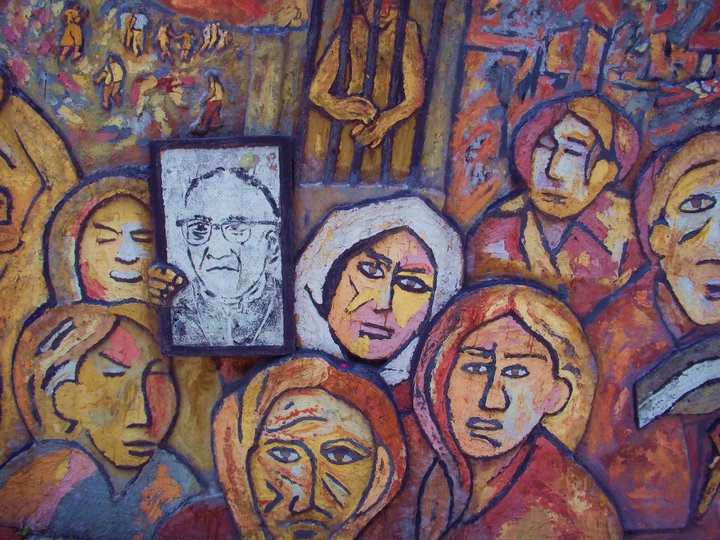
If you could focus on something for the next 50 years—and give all of your best thought, focus, resources, and energy toward that one thing—what would it be?
If, as a church, we could focus on something or some thing(s) for the next 50 years, what would make the greatest difference? And when Jesus taught us to pray, “May your kingdom come and your will be done on earth as it is in heaven,” what efforts do you think he had in mind?
Recently, Timothy Keller wrote a series of four articles that are a must-read for every Christian pastor and leader on The Decline and Renewal of the American Church:
I urge you to take the time to read all four. It will probably take a good hour to read and process all of them, but it’ll be worth your time. Keller is a gift to the church.
Now when it comes to that something or those some thing(s) to focus on for the next 50 years, here are a list of eight projects that Keller is inviting us to consider. The following are his words, not mine from his fourth article:
The Projects of Renewal
This project list is not final. God will lead the leaders to his will for them. And this list which I put forward for consideration was given in the third article. For reader convenience here it is again with somewhat fuller descriptions.
- Church planting and renewal. We need to double the number of new church plants in the U.S. from the current 3-4,000 to 6-8,000 annually. Current models of church planting need to be changed. First, because they are both too under-resourced among poor and working-class populations and done too expensively in the more advantaged populations. Church planters, in general, will need (a) far more coaching and support, (b) far more training and education delivered to them as they minister, and (c) more institutional support for an evangelistic model that grows through conversion rather than a marketing model that grows through marketing and transfer.
- ‘Counter-Catechesis’ discipleship. Christian education, in general, needs to be massively redone. We must not merely explain Christian doctrine to children, youth, and adults, but use Christian doctrine to subvert the baseline cultural narratives to which believers are exposed in powerful ways every day. We should distribute this material widely to all, disrupting existing channels, flooding society, as it were, with the material as well as directly incorporating it into local churches.
- Post-Christian Evangelism. The Christian church in the West faces the first post-Christian, deeply secular culture in history. It has not yet developed a way to do evangelism with the secular and the “nones” that really gains traction and sees many people regularly coming to faith. This project is to develop both content and means for such evangelism. The means will entail a mobilization of lay people in evangelism, as in the early church. The content will show how to demonstrate to deeply skeptical people that Christianity is respectable, desirable, and believable (cf. Blaise Pascal’s Pensée 187).
- A Justice Network. We must create a network—at least one trans-denominational ministry or maybe a network of networks—that organizes Christians and churches in communities to both help various needy populations and also to work for a more just and fair social order at the local level. Only relatively large congregations can mount effective ministries to address social problems. A network will provide any church and every church in a locale multiple ways to be involved in visible-to-the-world ways and means for tackling the most acute and chronic injustices and social issues in a community or region.
- A Faith-work Network. We must create a network (or, again, a network of new and existing ministries) that organizes and equips Christians for ‘faithful presence’ in their vocations, [19] to help them serve the common good through integrating their faith with their work. The network will help churches disciple people for their public life so Christians neither seal their faith off from their work, nor infiltrate vocational fields for domination.
- The “Christian mind” project. Evangelicalism has a strongly anti-intellectual cast to it that must be overcome without losing its appeal to the majority of the population. The goals include increasing the number of Christians on faculties, forging a robust intellectual culture for orthodox Protestantism, and increasing the number of Christian public intellectuals. This will not only entail promoting believers into the existing intellectual and cultural economy of basically (a) largely progressive universities and (b) largely conservative think tanks. It will also mean creating some kind of alternate cultural economy for scholarship and intellectual work.
- A new leadership pipeline. We must not only renew, re-create, expand, and greatly strengthen youth ministry and campus ministries across the country, but we must link these (more tightly than in the past) with local churches and denominations, ministry/theological training centers, colleges, and seminaries—forming coherent yet highly diverse and flexible pathways for leadership development (e.g. conversion, then student leadership, then internships, then staff positions and other leadership positions). The purpose is to produce increasing numbers of well-equipped Christian leaders.
- Behind all these seven projects is an eighth ‘meta’ project. Call it Christian philanthropy. We cannot renew the church or be of any help to society without strong financial undergirding. That will require a change in how Christians give and steward their wealth such that it will release far more money for ministry than has been available.
Is God calling you to focus on one of these eight? If you could focus on something for the next 50 years—and give all of your best thought, focus, resources, and energy toward that one thing—what would it be?

